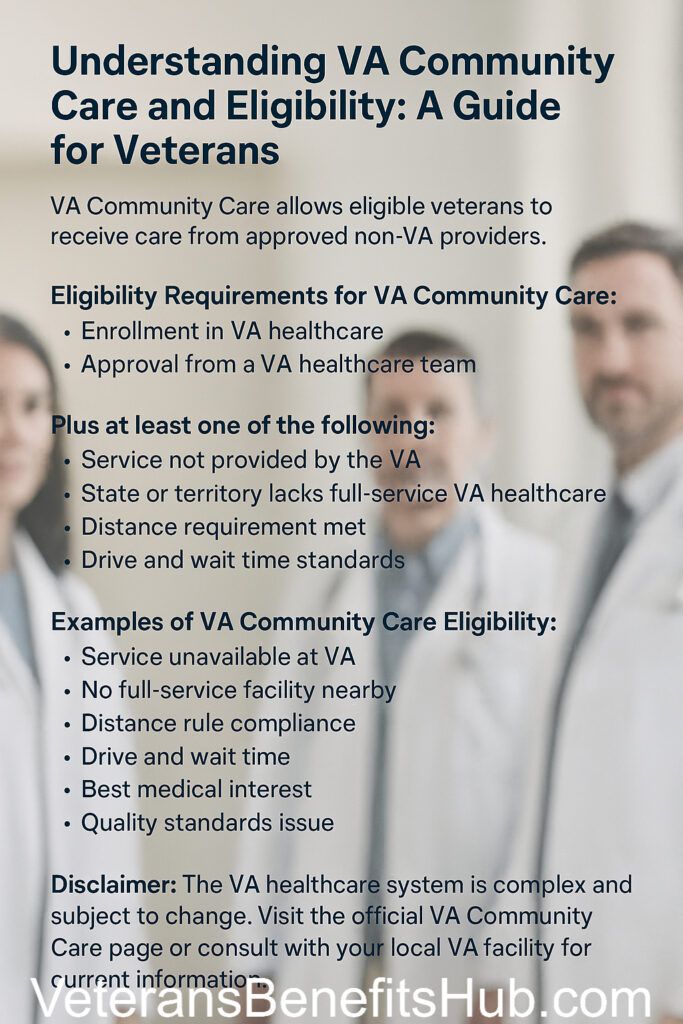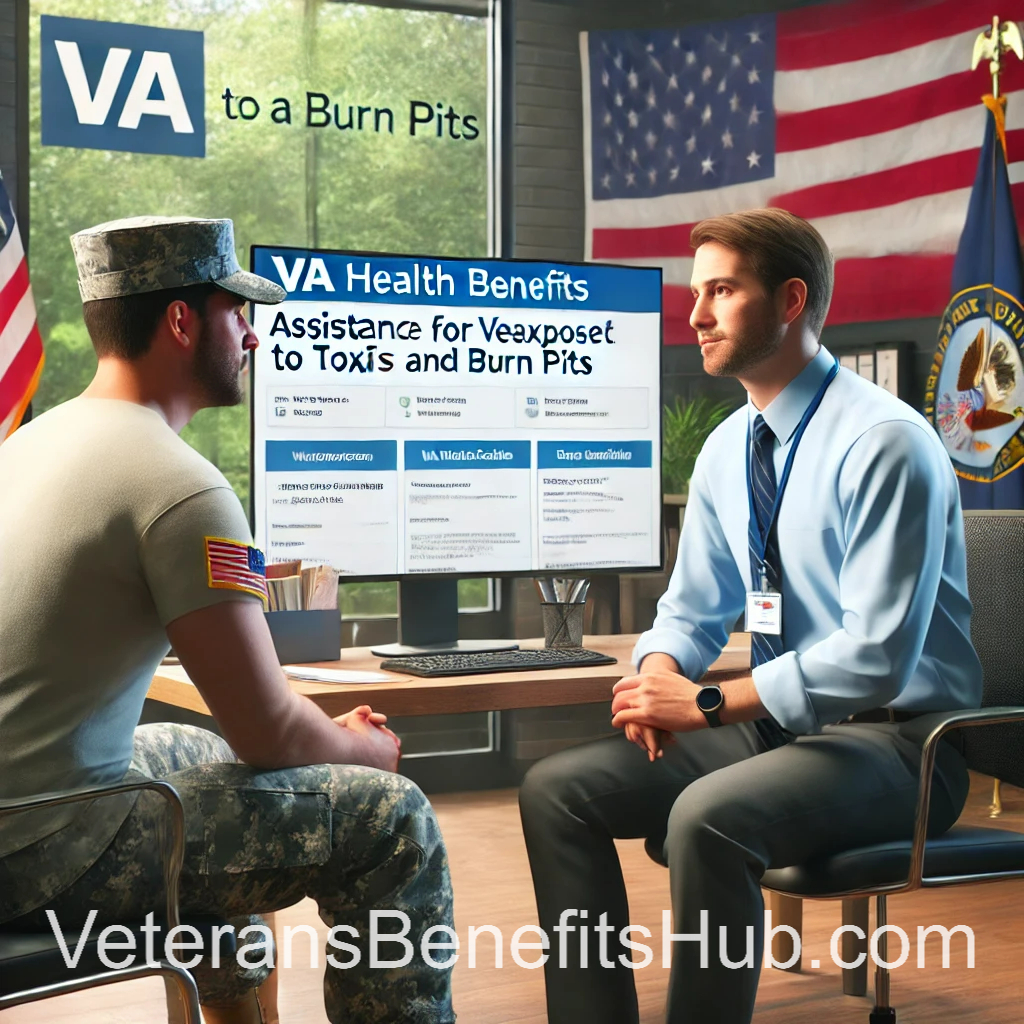Understanding VA Community Care and Eligibility: A Guide for Veterans

The Veterans Health Administration (VHA) has been evolving over the years, especially with the introduction of the Mission Act. One of the most significant aspects of this act is expanding VA Community Care, allowing veterans to access healthcare services outside of VA facilities. In this guide, we’ll break down how community care works, who is eligible, and why staying connected with your local VA is crucial.
What Is VA Community Care?
VA Community Care allows eligible veterans to receive healthcare services from approved non-VA providers. This option exists when VA facilities cannot offer the needed care or when it is in the veteran’s best medical interest to seek treatment elsewhere.
The concept of Community Care was solidified with the VA MISSION Act of 2018, which built upon previous initiatives to streamline veterans’ access to healthcare. The act clarified how veterans could seek care outside the VA and ensured that eligible veterans could access services in a timely and efficient manner.
Why Staying Connected to Your VA Matters
Even if you don’t need immediate care, maintaining regular contact with your VA facility is essential. Visiting at least once a year ensures that your eligibility for Community Care remains intact. If you haven’t been to a VA clinic in over a year, accessing Community Care might become more challenging. In some cases, re-establishing care might involve lengthy appointment wait times or even visits to an emergency room just to restore eligibility.
Eligibility Requirements for VA Community Care
To be eligible for Community Care, veterans must meet two basic requirements:
-
Enrollment in VA Healthcare: You must be enrolled or eligible for VA healthcare. If not yet enrolled, you can do so by submitting Form 10-10EZ on the VA’s website.
-
Approval from a VA Healthcare Team: Before receiving care from a community provider, you must obtain approval from your VA healthcare team. Attempting to seek care without prior authorization will result in the VA denying payment.
Additionally, veterans must meet at least one of the following criteria:
-
Service Not Provided by the VA: If the VA does not offer the necessary medical service, Community Care may be approved.
-
State or Territory Lacks Full-Service VA Healthcare: If you reside in a state or territory without full-service VA facilities (e.g., Alaska, Hawaii, Guam), you may qualify for Community Care.
-
Distance Requirement Met: Veterans residing in Alaska, Montana, North Dakota, South Dakota, or Wyoming who met the 40-mile distance rule on June 6, 2018, may still qualify.
-
Drive and Wait Time Standards:
-
Primary or Mental Healthcare: If the VA cannot provide an appointment within 30 minutes of drive time or 20 days from the request, Community Care may be authorized.
-
Specialty Care: If specialty care (e.g., cardiology) cannot be scheduled within 60 minutes of drive time or 28 days, veterans may use Community Care.
-
-
Best Medical Interest: If your VA provider believes that specialized care is better served by a community provider, they may recommend Community Care.
-
Quality Standards Not Met: If your local VA facility does not meet quality standards for the required treatment, you may receive authorization for community-based services.
Examples of VA Community Care Eligibility
Here are some real-world examples of when Community Care might be necessary:
-
Service Unavailable at VA: You require dialysis, but your local VA facility does not provide it.
-
No Full-Service Facility Nearby: You live in a remote state or territory without a full-service VA hospital.
-
Distance Rule Compliance: You live in a rural state and previously qualified under the 40-mile distance rule.
-
Drive and Wait Time:
-
Primary or Mental Healthcare: No appointment within 30 minutes or 20 days.
-
Specialty Care: No appointment within 60 minutes or 28 days.
-
-
Best Medical Interest: You need specialized care not available at your local VA.
-
Quality Standards Issue: The VA facility near you does not meet quality standards for your required treatment.
Final Thoughts: Navigating Community Care
Community Care can significantly impact veterans who need timely, specialized, or conveniently located healthcare. However, there are important steps to follow to ensure eligibility and approval. Always consult your VA healthcare team before seeking community-based services, and stay informed about your rights and requirements under the MISSION Act.
Disclaimer
The information provided here is intended to be a general guide and may not cover every situation. The VA healthcare system is complex and subject to change. For the most current and personalized information, visit the official VA Community Care page or consult with your local VA facility.
